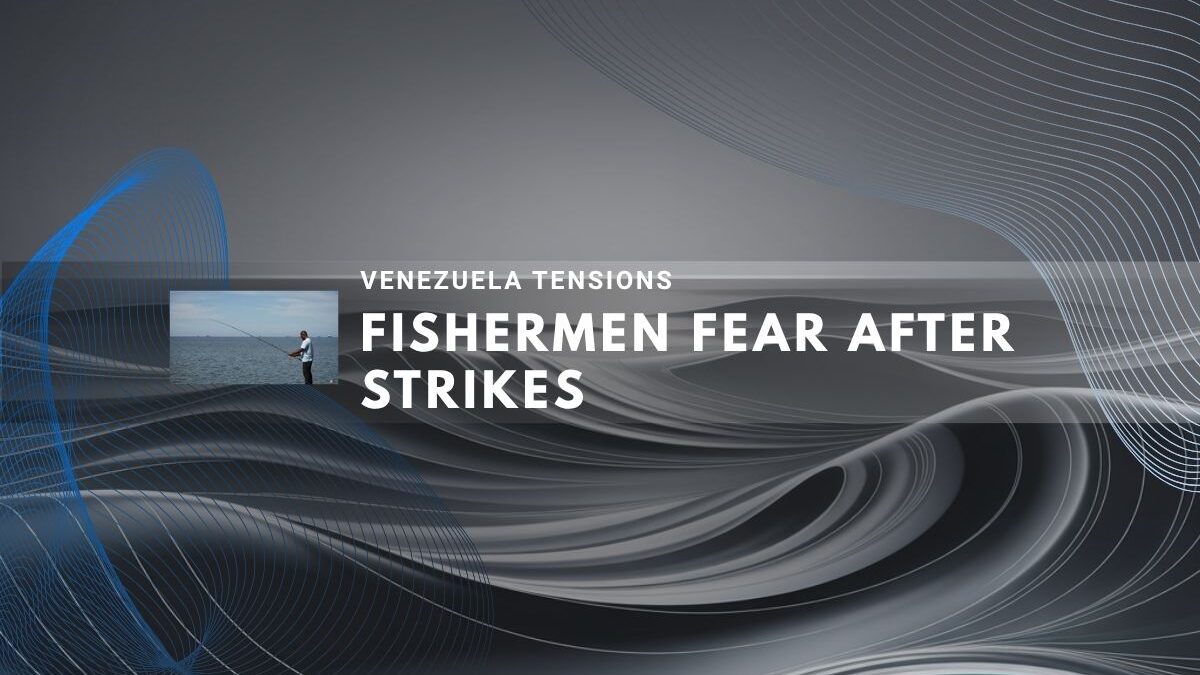Tobago fishermen fear U.S. military strikes could put them in danger as tensions escalate near Venezuela. Fishermen fear U.S. forces may mistake their boats for drug trafficking vessels, and many now worry about being targeted. Fishermen fear us strikes could label them as narco-terrorists without cause, creating serious risks for those working just 7 to 11 miles off the Venezuelan coast. The us military strikes and increased presence in the southern Caribbean highlight growing instability, putting local fishing communities at heightened risk.
U.S. Military Operations Intensify in Caribbean Waters
The Trump administration has significantly increased military presence in the southern Caribbean since September 2025. Eight U.S. warships, including a nuclear-powered submarine and F-35 aircraft stationed in Puerto Rico, now patrol the region. The fifth strike occurred on October 14, 2025, killing six people on a vessel the U.S. claims was trafficking narcotics. [1][2]
The administration classified the situation as a non-international armed conflict with drug cartels, justifying the use of wartime measures. On October 10, 2025, the Pentagon announced a new counter-narcotics joint task force overseeing operations in Latin America. Legal experts question the legitimacy of these military interventions, as the U.S. has provided limited evidence about the identities of those killed or the cargo involved. [3][4]
Trinidad and Tobago Caught Between Regional Powers
Prime Minister Kamla Persad-Bissessar has openly supported U.S. military actions against drug cartels, calling on the U.S. to kill them all violently. She pledged to grant the U.S. access to Trinidad and Tobago territory if necessary to defend Guyana from Venezuelan territorial claims. Venezuela claims two-thirds of neighboring Guyana as its own. [5][6]
Venezuela Responds With Military Mobilization
Venezuelan President Nicolás Maduro condemned U.S. actions as military aggression aimed at regime change. On September 8, 2025, Venezuela announced plans to deploy approximately 25,000 troops in coastal states to combat drug trafficking. Maduro placed the military and civilians willing to take up arms on high alert, calling Persad-Bissessar’s stance tantamount to a declaration of war. [7][8]
Fishermen Face Growing Threats to Safety and Income
Kenrick Modie, a fisherman from Icacos village, fears being killed by a U.S. military strike while fishing. He worries his boat could be mistaken for a drug smuggling vessel and that he would be falsely labeled a narco-terrorist with no chance to clear his name. [9][10]
The fishing communities of Icacos and Cedros depend heavily on the sea for their livelihoods. Kamal Bikeran reported that his crew now stays in shallower waters and avoids going far out to sea because of tensions involving the three countries. The heightened military presence from both U.S. and Venezuelan forces, combined with existing pirate threats, has forced fishermen to restrict their fishing activities. [11][12]
Key impacts on Trinidad and Tobago fishermen include:
- Risk of being mistaken for drug smugglers by U.S. forces
- Reduced fishing areas due to military presence at sea
- Decreased catches leading to lower incomes for families
- Fear of false labeling as narco-terrorists if killed
- Existing threats from pirates now compounded by military tensions
- Boats visible along shoreline show community dependence on fishing
Regional Leaders Call for Diplomatic Resolution
Caribbean leaders have urged dialogue to prevent the situation from escalating into war. Barbados Prime Minister Mia Mottley described the region as a potential zone of peace and called for calm discussions. Ralph Gonsalves, Prime Minister of St. Vincent and the Grenadines, criticized the militarization near Venezuela as exceedingly troubling. These regional voices highlight the urgent need for diplomacy to avoid conflict that could endanger civilians and disrupt the Caribbean economy. [13][14]
Fishermen fear U.S. military strikes could put them at risk as tensions escalate near Venezuela. The fear U.S. strikes in the southern Caribbean may mistake their boats for drug trafficking vessels is growing among local fishing communities. fishermen fear us. forces could target them, with the fear us strikes near Venezuelan waters creating significant safety concerns. The U.S. military strikes, combined with ongoing political pressure on Maduro, add to the uncertainty for those working off the coast, even as the United States offers a $50 million reward for information leading to his arrest. [15][16]



